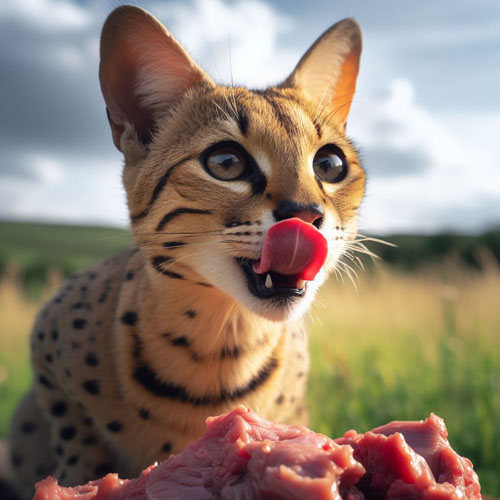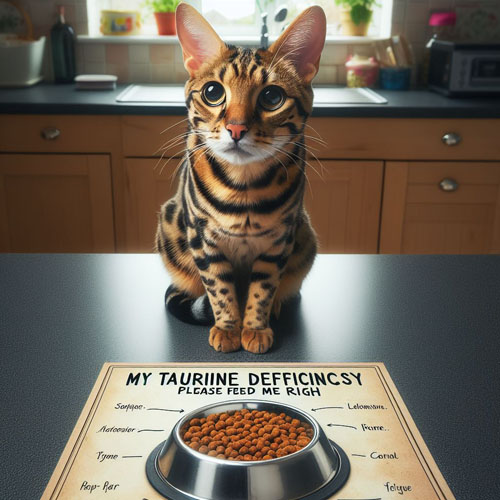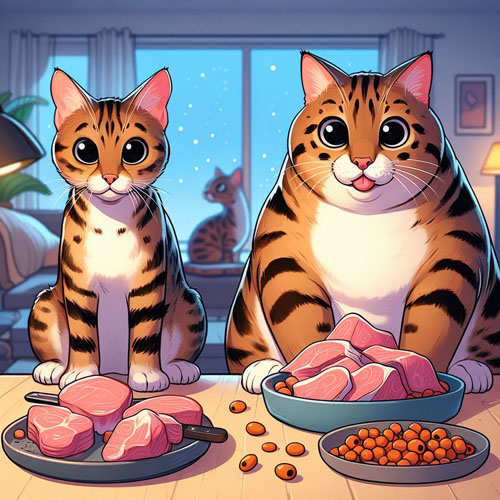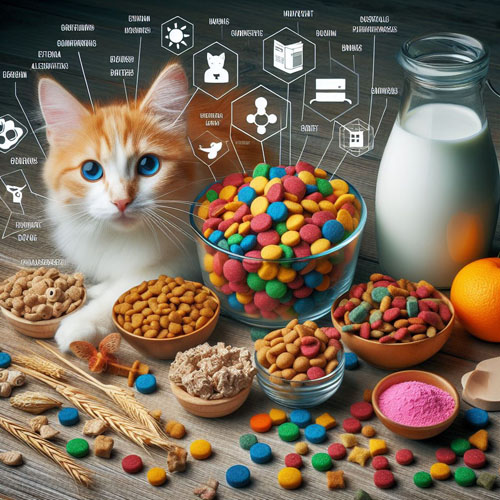Dry Cat Food: A Professional Examination
When it comes to providing our feline companions with a balanced and nutritious diet, the choice of cat food plays a crucial role. Among the various options available, dry cat food has become increasingly popular due to its convenience and longer shelf life. However, not all dry cat foods are created equal, and it is important for cat owners to be aware of certain ingredients that may be detrimental to their furry friends’ health. In particular, corn meal and carbohydrate fillers have been found to have adverse effects on cats’ overall well-being.
Corn meal, a common ingredient in many dry cat food formulations, is often used as a filler to reduce production costs. While it may seem harmless, corn meal has limited nutritional value for cats. Cats are obligate carnivores, meaning their bodies are designed to derive most of their nutrients from animal sources. Corn meal, being a plant-based ingredient, does not meet the specific dietary requirements of cats. Moreover, corn is also a common allergen for cats, which can lead to various digestive issues and skin irritations.
Another issue with dry cat food is the use of carbohydrate fillers. Carbohydrates, such as wheat, rice, and oats, are often added to dry cat food to provide a cheap source of energy. However, cats have limited ability to metabolize carbohydrates efficiently. In the wild, cats would primarily obtain energy from protein and fats, not carbohydrates. Excessive consumption of carbohydrates can lead to weight gain, diabetes, and other metabolic disorders in cats.
To ensure our cats receive the best possible nutrition, it is crucial to carefully read and analyze the ingredient list on dry cat food packaging. Ideally, the first few ingredients should be high-quality protein sources, such as chicken, turkey, or fish. These animal-based proteins provide cats with the essential amino acids they need for proper growth, maintenance, and overall health. Additionally, quality dry cat foods should contain moderate amounts of healthy fats and a minimal number of carbohydrates.
When choosing a dry cat food, it is also important to consider the specific needs of your cat. For example, if your cat has certain health issues, such as allergies or a sensitive stomach, it may be necessary to opt for a specialized diet formulated to address these concerns. Consulting with a veterinarian can provide valuable guidance in selecting the most suitable dry cat food for your feline friend.
In conclusion, while dry cat food offers convenience and extended shelf life, it is crucial to be mindful of the ingredients it contains. Corn meal and carbohydrate fillers, often used as cost-cutting measures, do not provide the necessary nutritional value for cats and can have adverse effects on their health. By prioritizing high-quality protein sources and minimizing carbohydrate content, we can ensure our cats receive a balanced and nutritious diet that supports their overall well-being. Remember, our cats rely on us to make the best choices for their health, and selecting the right dry cat food is an essential part of that responsibility.





